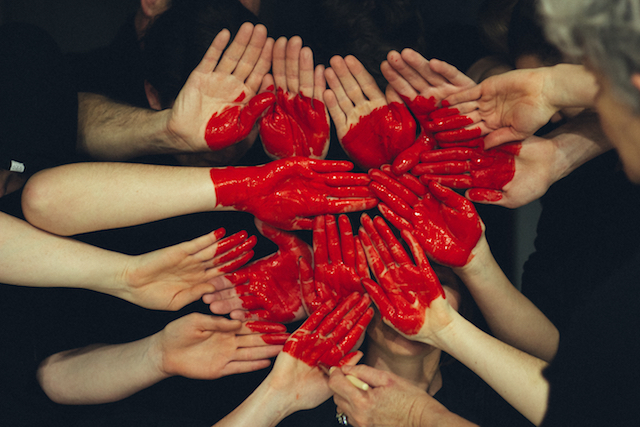
Many of us have been rejected, felt emotionally abandoned, or have lost a loved one.
These big relationship “hurts” don’t just feel bad, they take a toll on our health and well-being.
Sometimes, we can feel this pain right in our chests, as if our hearts got punched or stepped on.
This is where the term “heartbreak” comes from. It’s as if our hearts are literally breaking.
Well, turns out that may be partially true.
The Journal of the American Society of Echocardiography published a study conducted at the University of Aberdeen (funded by the British Heart Foundation) that tracked 52 patients who suffer from Takotsubo syndrome and found that once the heart is “hurt” through a sudden or traumatic loss, it has trouble beating and contracting in its normal way. Not only are new scars created, but the heart doesn’t recover.
Also know as “broken heart syndrome,” Takotsubo afflicts about 3,000 people in the United Kingdom each year. The syndrome can be triggered when a person suffers severe emotional stress. For example, when your heart gets hurt due to a stressful breakup or the loss of a loved one, the left ventricle literally changes shape, almost like a dent, which makes it more difficult for the heart to pump blood.
The Mayo Clinic describes Takostubo as a “temporary” disease. Well, this newer study contradicts that, suggesting that these patients may not recover, ever.
Gulp.
Professor Metin Avkiran, Associate Medical Director at the British Heart Foundation, said:
“Worryingly, these patients’ hearts appear to show a form of scarring, indicating that full recovery may take much longer, or indeed may not occur, with current care.”
And Dr. Dana Dawson from the University of Aberdeen, lead author on the study, said:
“Recent studies have shown that this disease is not as rare as we thought, so finding out the effect that it has on sufferers’ hearts is increasingly important.”
So, what does this mean for you and me?
To me, it’s a yellow flag, beckoning us to do our emotional healing work when we feel heartbroken.
Why? Because this study suggests that, contrary to popular folklore, time doesn’t heal a broken heart. In other words, don’t stuff your pain down and expect to improve.
As a relationship psychotherapist and coach who has worked with thousands of people, my experience shows me the people who successfully heal a broken heart do so by working through and resolving their emotional pain. This, in turn, allows them to move toward closeness and connection again, instead of not letting someone in for fear of getting their heart broken again.
A broken heart can, in fact, be healed. Heartbreak can also make us stronger. I’ve seen this countless times in myself and people I work with every day. However, this level of resiliency is happening for people who do the internal healing work and reap the lessons from their pain and losses.
Bottom line?
A massive heartbreak can do long-term damage to your physical health and time alone won’t fix it. So, let’s honor our sensitive hearts, learn how to love, and learn how to heal from any and all broken hearts we encounter. It just might save our lives.
~
Relephant read:
Getting over Heartbreak, According to Science.
~
Author: Jayson Gaddis
Image: Tim Marshall/ Unsplash
Editor: Khara-Jade Warren
Copy Editor: Leah Sugerman
Social Editor: Catherine Monkman








Read 0 comments and reply